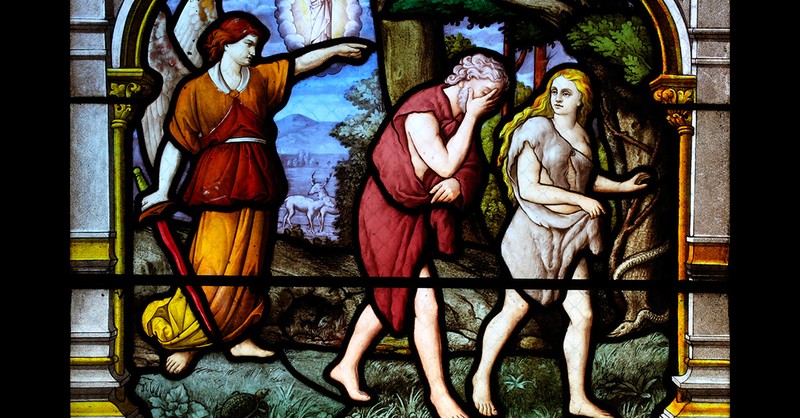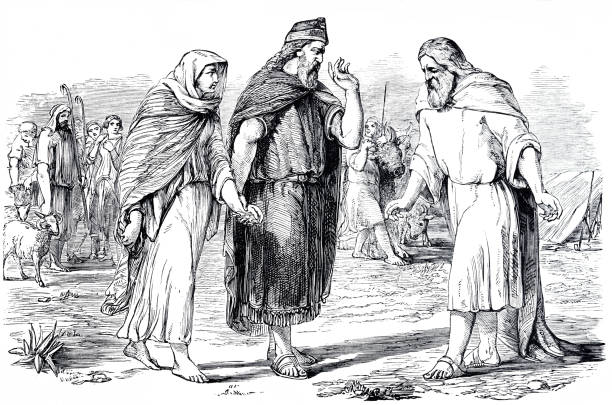We are all sinners from birth, and there’s nothing we can do to change that. Everyone owes their sinful nature to the heritage of Adam and Eve, but what happens to repeat offenders? When I was younger, I often wondered how will God forgive me for repeating the same sin.
Repeating a sin is different because it involves knowingly engaging in sinful actions. It often implies a person’s disregard for God’s principles and carelessness for the consequences that follow. In some instances, it can deepen the sense of guilt, but sometimes, it can completely erase it.
The article will discuss the events in life when people repeat a sin and what the Bible says on the matter.

Will God Forgive Me for Repeating the Same Sin
Let’s get this out of the way before we continue delving deeper into the subject: God has the power and the authority to forgive all sins. This is crucial to understanding his omnipotence and his unlimited capacity for mercy and grace. This includes all sins regardless of the magnitude and frequency of committing.
God’s condition for forgiveness is always for him to receive repentance and to see genuine remorse in the sinner. The sinner has to acknowledge the fact that they’ve done wrong, and they need to be profoundly regretting their actions.
Moreover, depending on the nature of the sin, they should show an effort to turn away from the wrongdoing or repair the damage.
The Origins of Sin
First, it’s important to know the origins of sin, as people weren’t always made to be sinful in nature. It was through their choice to disobey God that the concept of sin was introduced, and here’s the story of how it happened.
Adam and Eve were the first people created by God, and they lived a life of abundance in the Garden of Eden. They lived innocently and without sin, enjoying a harmonious relationship with God, who still gave them free will upon their creation.
God had placed a tree in the realm called the Tree of the Knowledge of Good and Evil, and consuming the fruits of this tree was strictly forbidden. This proved to be too great of a temptation as both Adam and Eve tasted it after receiving counsel from a serpent.
Adam and Eve used their free will to perform the ultimate act of disobedience toward God, ultimately leading to their getting expelled. The consequences of their rebellion affected all of humanity’s future generations as their sinful nature passed on through their genes.
God punished women for Eve’s sin by making childbirth painful, while he punished men to struggle to provide for their families.

Why is there free will?
Wouldn’t it have been easier if God simply didn’t provide free will to Adam and Eve? Without having the choice, they wouldn’t have committed the terrible sin, and there wouldn’t have been any consequences for humanity as a result.
Being all-knowing, God gave Adam and Eve free will for them to create true love because love cannot be forced or coerced. Adam and Eve were able to choose to love God and obey him, while they also could choose to disobey and hate him. Having the ability to do and feel the opposite made for an authentic relationship.
God created people in his own image, and God has the capacity for free will. For humans, free will means constant growth and improvement as they accept Christian values. The more they take responsibility and the more they learn from their mistakes – the more humans grow and improve.
Free will is also a stern test of people’s willpower and ability to withstand temptation, which is the ultimate motivation for improvement. Yes, Adam and Eve failed, but the original sin opened the door for humanity to understand God’s mercy, redemption, and the concept of salvation.
Their sin is a testament to people’s imperfection, but also, without it, we wouldn’t have known God and his eternal love for humanity.
How does God forgive sin?
The way to receive forgiveness can sometimes be very straightforward. It begins with feeling genuine remorse, a sign of acknowledgement of the committed sin. By doing this, people expose themselves to God’s mercy and grace.
Openly confessing sin is the first step to seeking forgiveness for it. You can achieve true repentance and salvation through faith in Jesus Christ and accepting his sacrifice.
The crucifixion of Jesus is the ultimate act of love and sacrifice. The son of God paid for all our sins that day in the Garden of Gethsemane when he was crucified, and few people understand the value of the act.
Jesus, as a being, was both divine and human. As such, he accepted all the human sins in the world by sacrificing to suffer for them on the cross. Through his death, Jesus demonstrated his love for humanity and showed the way to forgiveness.
So the next time you feel remorse over sinning, remember that Jesus has already paid the price for your wrongdoing. You can seek forgiveness and repent for what you have done. Remember, any situation is an opportunity for growth and positive transformation.
Forgiving recurring mistakes from sinners
God treats recurring sins just like all other sins, but the problem arises within the individual and not with how God treats repeated offences. A recurring sin is more often than not a sign of carelessness and lack of guarding against the temptation that leads us to evil.
Although sometimes it can be a sign of complacency, it can also mean that the individual has lost all hope in living a God-loving life. Repeating a sin no longer becomes an issue for them personally but an issue for their family and loved ones.
That is when an intervention is necessary in order to stop the child of God from wrecking their life.
Instances in the Bible of people repeating the same sin
Samson and his lust for women
The great biblical hero Samson was famous for his superhuman strength but also his insatiable appetite for women. His lust commonly got the better of him, and in the end, he paid a very high price for it.
Samson’s strength was in his hair which he was forbidden to cut in order to preserve his superhuman power. His strength could tear apart a lion and kill many people with his bare hands, leaving his enemies clueless about how to defeat him.
That was until the Philistines bribed a woman named Delilah to make him fall in love with her and discover what was the source of his power. Samson fell for Delilah and made himself vulnerable, which was much to his demise, as she cut his hair while he was asleep.
Without his hair, Samson was powerless to defend himself and ended up at the mercy of the Philistines, who made him their slave. In the end, Samson regained enough of his strength to tear down their temple, burying many Philistines along with himself.
The Idolatry of the Israelites
In the old days, the Israelites suffered many challenges and struggles. Their faith has gone through turmoil as well, with them even turning against God and making various acts of rebellion. Having no leadership meant that they were like sheep without guidance, and they often fell victim to oppression.
The Israelites suffered a moral, social, and spiritual decline which was most easily observed through their idolatry. They abandoned the one God to worship objects or deities from their neighboring nations.
Despite witnessing God’s miracles, they were easily convinced into idolatry. The most prominent case was when Moses was receiving the Ten Commandments from God on Mount Sinai.
Moses was away for an extended period, causing the Israelites to grow impatient and start worshipping a golden calf. They were offering sacrifices and were in direct conflict with the very commandments Moses was receiving at the time.
After pleading with God to show them mercy, Moses unleashed his own wrath upon unremorseful idolaters in an effort to bring back normality among his people. Moses acted as an instrument of justice, ensuring that people learned that there would be consequences for their actions.

Peter’s denial of Jesus
It is one of the most prominent examples of a repeated sin from the Bible, and it was foretold that it would happen by Jesus Christ. In the events that preceded the crucifixion, Jesus assembled his entourage of 12 disciples, commonly known as the apostles.
It was for a sacred dinner where Jesus disclosed the imminent betrayal and his impending crucifixion to his disciples. The disciples were in disbelief that a member of their group would betray their beloved teacher and the son of God.
The most vocal disciple of all was Peter, who was overwhelmed by the things he was hearing. He declared his unwavering commitment to Jesus and promised that he would never allow such things to happen to Jesus.
To this, Jesus responded that Peter, of all people, would deny him three times before the rooster crows. Although Jesus was aware of Peter’s pure intentions, he also knew about how people tend to change once their life is in danger.
In the end, everything that Jesus had foretold came true. Peter was accused of associating with Jesus three times, and he denied all connections out of fear for his own life.
Abraham lying about his wife
Abraham was married to a very beautiful woman named Sarah. This was a curse as much as it was a blessing because many desired Sarah for themselves. Unsure of God’s protection and fearful for his own life, Abraham resorted to some deceitful tactics in order to save his neck.
When the couple entered Egypt during a time of famine, Abraham advised his wife to say that she is only his sister, so they would not have him killed. Abraham was right to suspect the intentions of powerful men as the pharaoh did take Sarah into his palace.
It was only God’s intervention that saved Sarah from the pharaoh, as he unleashed plagues onto the pharaoh’s household. Once he realized that it was the presence of a married woman that was bringing adversity into his house, he returned Sarah to Abraham and told them to leave Egypt.
Abraham had to lie again about his relationship with Sarah, only this time to Abimelech, who was the ruler of Gerar. Similar to the last time, Sarah ended up in a harem and had to be delivered by God, who appeared in Abimelech’s dream.

FAQs
Can God forgive all sins?
Yes, he has the capacity to forgive all sins, but under the condition that the sinner feels genuine remorse for their actions. The sin redemption also has to be authentic.
Does God forgive repeating sins?
The frequency of sins doesn’t limit God’s mercy and grace. They are determined only by the person’s profound desire to right the wrongs and live life as God intended.
Do you go to heaven if you break the Ten Commandments?
As with any other sin, breaking any of the Ten Commandments doesn’t prevent you from entering the gates of heaven. What needs to happen before God gives forgiveness is that the person needs to repent, showing profound regret for their mistakes.
Summary
All people are sinners from birth, as they all come from Adam and Eve, who performed the original sin. God gave people free will, which includes the ability to perform sin because it’s the only way to create authentic relationships that rely on love, acceptance, and understanding.
People often repeat a mistake they’ve already repented for because they hadn’t learned some vital lesson along the way. If they are ready to admit and confess their wrongdoings, God will expose them to his grace and mercy.
The Bible accounts for several instances where protagonists made a repeat offense, and depending on the context and the gravity of the sin, it ended up with different results. While Samson lost everything, Abraham managed to save his life and keep his wife with the help of God. He didn’t ask, will God forgive me for repeating the same sin because he did it again in Gerar when his life was on the line.
That’s the main takeaway from this article. God’s forgiveness depends on how you perceive the sin, the overall context, and the severity of the damage.

 by
by 

